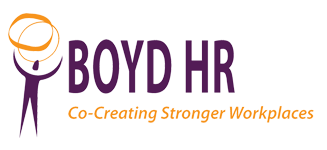Increasing the profitability of your Business requires that you increase your sales and/or reduce your cost of sales. During this Pandemic most businesses that do not have an on-line presence are constrained in their efforts to increase their sales revenues. What is within their control is to reduce their cost of sales.
Below are nine steps that we found worked best for us in Boyd HR, and hopefully will for you:
1. We looked at every single cost in our business and decided to eliminate all discretionary spends. For the essential elements, we took steps to reduce the costs, be it by way of renegotiating prices with our Suppliers or switching to alternative providers. A real benefit of this exercise, in addition to realising savings, was getting to know our cost base intimately.
2. We focused on managing our working capital by analysing our aged debtors and reviewing them on a daily basis. This has greatly helped to improve our cash-flow. We felt it important to ensure that our Creditors were fully paid and up to date.
3. We stress-tested our business by looking at different scenarios over the next 6-months (using macro signs to forecast) with a range of outcomes – best case; worst case & most probable case. For each outcome we have a plan. For worst case scenario, where there would be a significant and sustained loss in revenues, our plan includes having to consider short-term working, temporary lay-off and redundancies. We were mindful of the maxim – ‘fail to plan, plan to fail’.
4. We scaled-back on our investment plans in the short-term. We held off on our recruitment drive in the realisation that the opportunity to invest in our human capital is compelling. We will certainly revisit post the Pandemic.
5. We critically looked at our key business processes, identified and eliminated all non value-add activities and automated wherever we could. One example was automating our accounts function using Xero as our integrated accounts package.
6. In every professional services firm there is a small number of Clients that cost the organisation money and often heartache, be they Clients that can’t or won’t pay. Our advice would be not to allow any loss-making Customers place the wider health of your business in jeopardy.
7. In Boyd HR we treat our Clients as Business Partners. Taking a long-term perspective, we wanted to ensure that our Clients would have the best ‘fighting chance’ to survive the Pandemic. For those that stopped trading, we were proactive and paused their contractual commitments to us until such time as they are back-up trading profitably again. There has to be ‘give and ‘take’ in every relationship.
8. Our approach to product / service development has always been – what is the problem in the market place that we in Boyd HR have a unique solution for? We are using this time, where we have spare capacity, to focus on developing and market-testing new products / services and continue to remain relevant to our existing and targeted Clients.
9. We applied for the Wage Subsidy Scheme and are thankful recipients. This Government initiative is a ’life-line’ to lots of small businesses. This scheme allowed us to retain our existing cohort of Staff to work full-time. The Local Enterprise Office Voucher Scheme was equally important allowing us to engage professional supports in critical success areas.
By using this time wisely and proactively, we are confident that fantastic businesses, that are more efficient and leaner, will come out of this Pandemic. We are ever mindful, however, that certain businesses will not survive in their current form. Our job as Owner Managers is to set our Businesses for success and scalability, thereby generating economic growth, jobs and employment opportunities post this Pandemic.
Boyd HR
